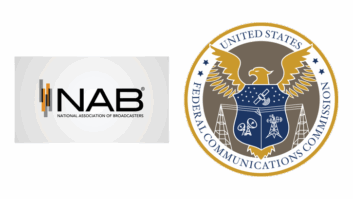Two separate legal challenges by broadcasters hoping to block the FCC’s plans to resume collecting employment data from radio stations are being consolidated into a single legal docket.
The FCC earlier this year revived a requirement for broadcasters to provide data that reveals the composition of their workforces. The rule change requires radio and television stations to collect data on the gender, race, ethnicity and job function of each station employee, a filing requirement that was suspended more than 20 years ago by court order.
The National Religious Broadcasters and the Texas Association of Broadcasters separately had asked the U.S. Court of Appeals Fifth District to reject the new rule, which is set to take effect on Monday, June 3.
The FCC says it and the involved parties have agreed to consolidate the petitions into one court docket, and the court this week issued a letter of consolidation. The legal challenge could delay implementation of the requirement.
Collection of Form 395-B was suspended in 2001 based on arguments from the National Association of Broadcasters and others that the practice was unconstitutional and ran afoul of the First Amendment.
The FCC has said collection of the employment data gives it a better understanding of workforce composition in the broadcast sector.
“We find further that continuing to collect this information in a transparent manner is consistent with a broader shift towards greater openness regarding diversity, equity and inclusion across both corporate America and governments,” the FCC wrote in its order.
[Related: “FCC Revives Annual Station Employment Reports“]
In its appeal, the NRB said the order exceeds the FCC’s statutory authority; violates the equal protection component of the Fifth Amendment and the Free Speech Clause of the First Amendment; and is an abuse of the FCC’s discretion.
“Form 395-B was suspended for 20 years for good reason and revived on highly questionable grounds,” says NRB President/CEO Troy Miller.
TAB says in its appeal that the commission’s order is an attempt to go around limits set by federal courts in how race can be used in hiring practices. It asks the appeals court to set aside the order as unlawful.
The association, which represents more than 1,200 radio and TV stations in Texas, wrote: “Acknowledging the obvious constitutional limitations on its own ability to pressure license holders to engage in race-conscious hiring, the FCC instead seeks to deputize private activists to pressure individual broadcast stations to engage in race and gender-conscious hiring to achieve the FCC’s long-held goal of imposing race and gender quotas on broadcast stations.”
The National Association of Broadcasters in previous comments told the FCC it did not oppose the commission moving forward with collecting employment data. NAB recommended, however, that the FCC first should have a well-defined plan for analyzing the data.
The Catholic Radio Association, which is not part of the appeal, told the FCC it takes issue with a change in Form 395-B that will now give broadcasters the option of selecting “non-binary” as a category when identifying gender. Previously the form required broadcasters to categorize employees as “male” or “female.”
Broadcasters have previously argued the data should be released anonymously or on an aggregated basis only. However, the FCC says all Form 395-B filing will be available to the public.
Broadcast stations with five or more full-time employees will have to submit the required EEO information annually. The first required filings from broadcasters will be due Sept. 30, barring court intervention.
The originally posted version of this story misattributed the quote that begins “Acknowledging the obvious…” It should have been attributed to the Texas Association of Broadcasters, not the National Association of Broadcasters. The text above has been corrected.







